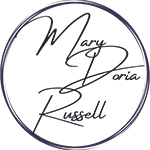John Henry Holliday did in fact play classical piano, and the novel Doc is framed by Beethoven’s 5th Piano Concerto, popularly known as The Emperor. Doc would not have had an orchestra behind him; orchestral pieces were commonly transcribed for solo piano in the 19th century.
There is an extraordinary physical resemblance between photos of John Henry Holliday and the young Glenn Gould. Again: I make no claim that Doc played at this level, but this was the video clip I watched while imagining him at the piano. Mr. Gould is playing the Bach Keyboard Concerto No. 1 in D minor, BWV 1052.
In the chapter “Wild Card,” Doc plays several pieces by Chopin for the Wright family. I chose these pieces to demonstrate his longing for the beauty and sophistication of the world from which he came, in contrast to the raw frontier on which he found himself after 1872.
In this scene, he begins with the Fantasy Impromptu, “to show off for the children.”
Next he plays the B-Flat Minor Nocturne, with “its slow, watery, tidal movement, like dawn on the Georgia coast.”
He goes on to the Polonaise in F-Sharp Minor, Op. 26, “which began with a bang, but floated toward a lovely quiet conclusion…”
And he ends his little recital with the A-minor Waltz, op. 34 No. 2, “graceful and willowy and almost unbearably sad.”
On a personal note:
Doc’s mother, Alice Jane Holliday, was his piano teacher. I am pleased to report that she has inspired another student to study the instrument, 145 years after her death. After I sent the completed manuscript to Random House in March of 2010, I celebrated by buying myself a piano. I began taking lessons at the age of 59 — because it was already 55 years too late to start when I was four.
Thank you kindly, Miss Alice.
